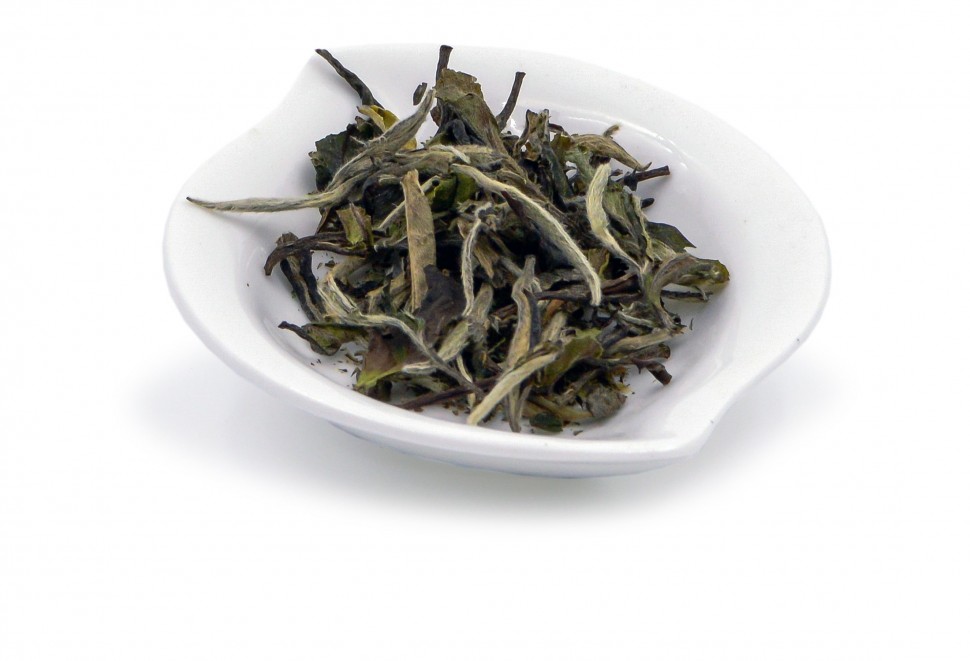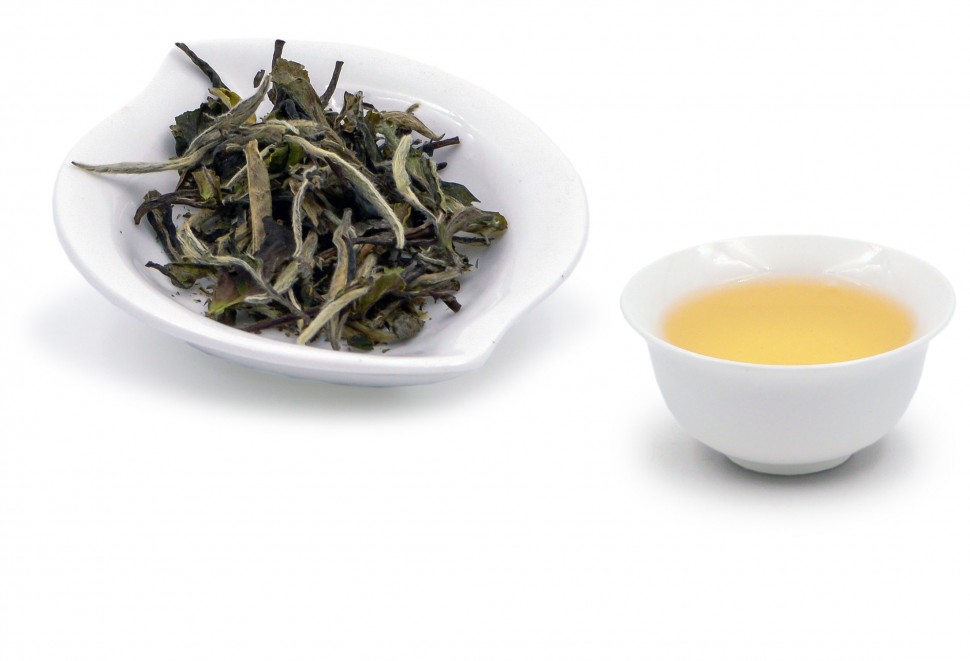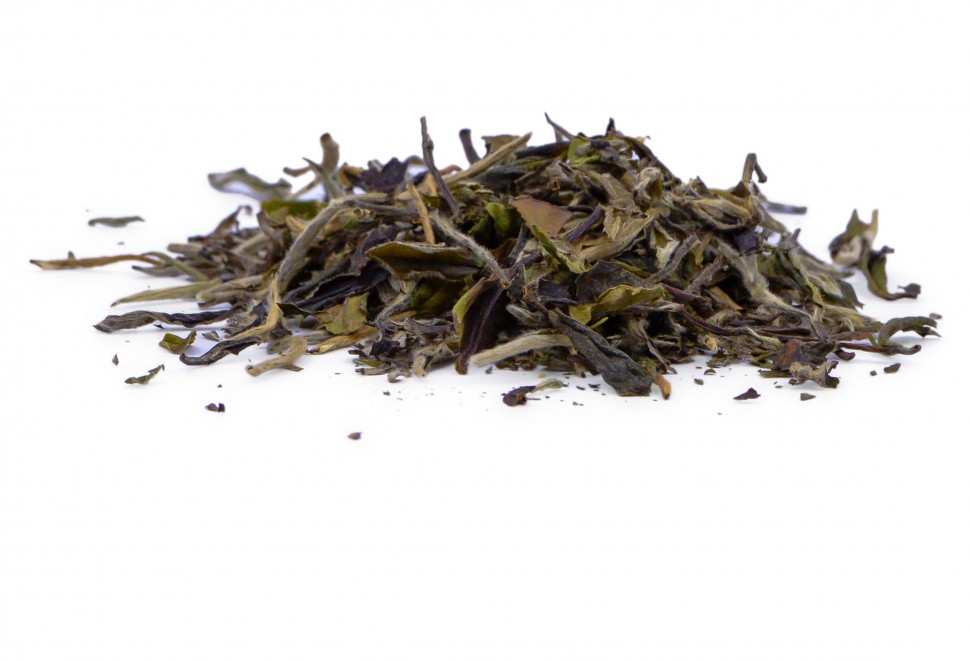




Premium version of White Peony Tea: Young leaves and unopened leaf buds bursting with fresh floral flavor
Caffeine Level: LowItem # 0004
WHAT IT IS Few people realize it, but, actually, white, green and black tea all come from the same tea plant; the only difference is the degree of oxidation, or treatment that the leaves undergo before they are completely dried.
Whereas Green tea and Black tea have varying degrees of oxidation, White tea has no oxidation at all. It is the most natural form of tea that there is. It has three times the amount of healthy nutrients and antioxidants with less than half the amount of caffeine that is present in green or black tea.
Experts say that the altitude at which tea is grown is a very important factor in the quality of white tea; the higher the altitude, the better the quality. White Peony King Tea comes from the mountains of Fuding in the Fujian province of southern China. It is grown at the altitude of more than 500 meters above sea level – and is considered to be of the highest quality in the White Peony Tea family. It is gathered in early spring, when the leaves are especially tender and full of nutrients.
FLAVOR NOTES White Peony King Tea consists of both young tea leaves and yet unopened leaf buds, bursting with fresh floral flavor.
If this is your first time brewing white tea, you may notice its very light color – and how subtle the flavor of white tea is, compared to green or black tea. This is because white tea has no oxidation – it is literally just the tea leaves, dried right after they were picked from the plant. So the tea is packed full of nutrients, but does not have very much color (which comes from oxidation). In time, you will notice that slightly longer brewing time will yield stronger flavors; also, the flavor will be more pronounced once the tea cools down a little.
Another wonderful way to enjoy white tea is as a cold beverage – at cooler temperatures, the flavor becomes slightly sweeter. Many say that cold white tea is an excellent way to quench your thirst.
HEALTH BENEFITS
BACKGROUND The Chinese name for this tea – “Bai Mu Dan” – translates as “White Peony.” This name was given to this tea because of the fresh, floral flavor yielded by the unopened tea leaf buds. It comes from the mountains of Fujian province in Southern China, known the world over for its high-quality white tea.